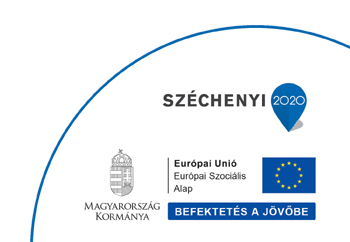Krisztina Tóth, Andrea Zentai
National Institute of Pharmacy and Nutrition (OGYÉI)
(In this program teachers get help in doing their first and fourth health promotion task of holistic health promotion /HHP, see short summary in the frame below/: improving healthy eating and health literacy + health competencies of children.)
Holistic health promotion in Hungarian schools: short summary The holistic health promotion (HHP) for schools is prescribed by law in Hungary since 2012 and it means a holistic, whole school approach where health promotion has to be part of the everyday life of the school – with participation of the whole school, parents and the public environment. HHP contains four health promoting tasks for teachers to do in their everyday work: I.) Healthy eating – potentially based on local food products; II.) Daily physical education fulfilling health promotion criteria and other forms of physical activity; III.) Using appropriate pedagogic methods (including arts) to enhance mental health; IV.) Improving health literacy and health competencies of the children. |
The entry into force of the Public Catering Decree[1] has brought significant reforms in some educational institutions. However, gradual preparation for the changes among students, parents, teachers and kitchen workers was often missing, therefore the Decree was rejected in several places.
According to the National Institute of Pharmacy and Nutrition (OGYÉI), the main premise of the acceptance of the reforms is to establish a school environment that supports healthy eating in every possible way. It includes general knowledge on the public catering system and on the Public Catering Decree (therefore general knowledge on the basic rules of healthy eating), as well as continuous dialogue between the different stakeholders, needs assessment and solving all the possible problems together.
In 2018 OGYÉI’s Division of Nutritional Epidemiology tested a 2-month long pilot program with the above mentioned aims, in 10 elementary schools with the support of the Ministry of Human Capacities (EMMI).
In the stage of methodology development (spring, 2018), 2 elementary schools from Budapest cooperated with the Institute. Relying on these experiences 8 more elementary schools were involved nationally, in the next school year (autumn, 2018). Schools were chosen using information provided by the National Public Health Centre (NNK) in order to be able to get as heterogenous sample as possible, taking into account location and type of catering as well as the opinions on catering.
Within the program (working together with NNK, the Hungarian Dietetic Association /MDOSZ/ and the Faculty of Health Sciences, Semmelweis University) a document titled “Conditions of a school environment which encourages healthy eating and acceptance of public catering” was set out. It includes a toolkit of national and international good practices as well. The majority of these good practices (aligning with the needs revealed during the previous orientation process and during focus group interviews) do not need extra financial or human resources inputs, therefore they can be adopted easily.
In the participating schools working groups called "canteen committees" have been set up involving the school management, teachers, parents, students, a caterer, food service manager, kitchen staff, and the school health service. The working groups were tasked with mapping the school environment, identifying the circumstances that could undermine healthy eating, and developing a short-term action plan based on the resources made available to them. OGYÉI provided a subsidy of 200000 HUF to the participating schools, which could be used for targeted development of the local catering and school environment.
To improve the knowledge of public catering and healthy eating, OGYÉI provided age-specific tutorials and informative publications – including also the „SMART PLATE” developed by MDOSZ – for the parents and educators.
The dietitians of OGYÉI visited all of the participant institutes, carefully surveying the building of the school, the dining room, the kitchen and the process of catering, and had conversation with the kitchen workers and their leader.
Focus group discussions on public catering were organized with the participation of school management, teachers, parents, as well as with the participation of younger and older school children from the index classes.
At the beginning and end of the program, the attitudes and knowledge of the Public Catering Decree were surveyed with questionnaires, and certain dietary habits of the index class students, their parents, educators and food service managers. Separate questionnaires have been prepared for students and their parents who use the public catering and those who do not.
The provided meals were evaluated by students of the index classes using two main categories: „it tastes good” and „it doesn’t taste good” for 8 weeks. At the beginning and end of the two-month program, the kitchen staff used the scales provided by OGYÉI to measure the amount of food waste at the school.
All measurements and questionnaires were used for motivation and not for any scientific survey, this is why no results were published. More information: https://merokanal.hu/egeszsegorzoiskola/
The guides are published on the website of OGYÉI: www.merokanal.hu ,where useful information can be found about healthy eating.
The main result of the pilot program was that it has shown: this way of local cooperation of all stakeholders was working well and the engagement with healthy eating has started to grow. Dietitians mean a good helping partner for schools in improving healthy eating.
[1] According to the surveys of the National Institute of Food and Nutrition Science (OÉTI), public catering previously did not meet the recommendations of healthy eating, so it was necessary to create a mandatory, comprehensive regulation: EMMI Decree 37/2014. (IV.30) which came into force on 1 January 2015 and refers to nursery, kindergarten, school, children's hospital, hospital, social institutional catering. It specifies the energy and nutrient requirements of particular groups, the amount of raw materials to be used per portion and dosing instructions, as well as the obligation to provide information. This way, it guarantees that the recipients of public catering will have access to the right amount, qualitative food.


